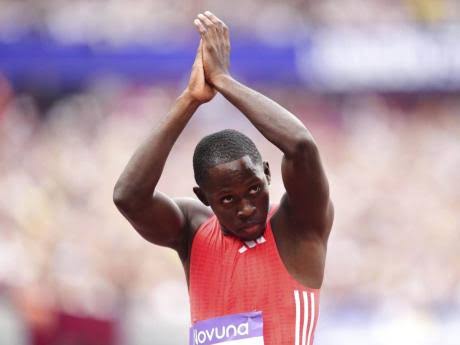
Jamaica has long been synonymous with sprinting excellence, and as the 2025 athletics season gains momentum, questions are swirling about whether the nation’s men’s 4x100m relay team has what it takes to threaten the world record.
The current record of 36.84 seconds, set by the legendary Jamaican quartet of Nesta Carter, Michael Frater, Yohan Blake, and Usain Bolt at the London 2012 Olympics, has stood unchallenged for over a decade. Now, a new generation of Jamaican sprinters appears poised to revive the nation’s dominance and perhaps even etch their names into history.
The 2025 relay squad brims with potential, featuring a dynamic mix of seasoned athletes and rising stars. Oblique Seville has emerged as the team’s undisputed leader, consistently clocking sub-10-second performances and recently defeating world champion Noah Lyles.
Seville’s top-end speed and composure under pressure make him the likely anchor—a role once owned by Bolt. Alongside him are Rohan Watson, the 2023 Jamaican national champion, and up-and-coming talents like Bouwahjgie Nkrumie and DeAndre Daley, both of whom have displayed blistering speed in their breakout performances on the Diamond League and collegiate circuits.
This new generation’s raw speed is undeniable. In individual 100m times, Jamaica’s top four men in 2025 are running personal bests between 9.86 and 10.00 seconds. When these speeds are combined with smooth baton exchanges and smart leg placements, the time differential can be minimized significantly. Historically, relay races are not merely about speed but about precision and rhythm, where the exchange zones can make or break a team’s chances.
Coach Glen Mills, the architect behind Bolt’s career and a key figure in Jamaican sprinting, is reportedly back working with the relay pool in preparation for the World Championships. His experience could be the X-factor in optimizing handoffs and race strategy. Mills understands that to beat 36.84, every exchange must be seamless and every sprinter must hit top gear at just the right time.
Yet, the challenge remains formidable. In recent years, the United States has dominated the 4x100m, with younger athletes like Fred Kerley, Noah Lyles, and Christian Coleman driving their momentum. Additionally, the British and Japanese teams have been consistently strong, boasting reliable exchanges and a deep talent pool. For Jamaica to break the world record, they must not only outrun the competition—they must outperform history.
One major advantage for the Jamaicans is the energy of the local crowd and the national pride that fuels their athletes. With the 2025 World Championships taking place in Tokyo and the Olympics on the horizon in 2028, this team knows that every performance matters. The motivation is there, the talent is in place, and the legacy of Bolt looms large as both inspiration and a benchmark.
While breaking the world record is an extremely ambitious goal, it is not out of reach. If the team remains healthy, focused, and benefits from expert coaching, Jamaica’s 2025 quartet could run a time in the 36.70s—potentially rewriting history. Whether they ultimately break the record or not, one thing is certain: Jamaica is back in the sprinting conversation, and the world will
be watching.
Be the first to comment